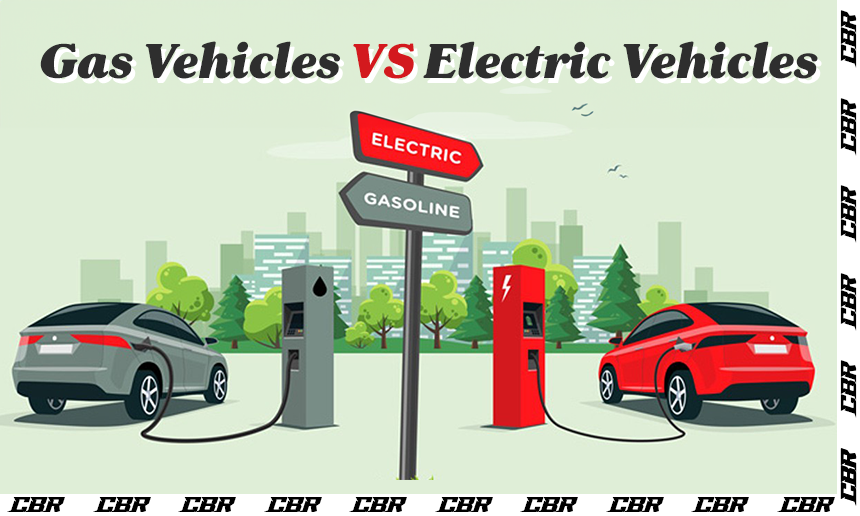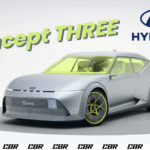As technology advances and environmental concerns rise, the debate between electric vehicles (EVs) and gas vehicles intensifies. Which one is better? The answer is not straightforward and depends on various factors, including cost, environmental impact, and personal priorities. This blog will delve into the differences, advantages, and disadvantages of EVs and gas vehicles, helping you make an informed decision.
What Are Electric Vehicles?
Electric Vehicles (EVs) are powered by electricity stored in a battery pack. Unlike traditional vehicles that rely on gasoline or diesel, EVs have an electric motor that draws energy from batteries. They produce zero tailpipe emissions, making them a more environmentally friendly option. With the growing infrastructure and advancements in battery technology, EVs are becoming increasingly popular.
What Are Gas Vehicles?
Gas Vehicles use internal combustion engines (ICEs) powered by gasoline or diesel. They are the most common type of vehicle on the road today, offering convenience, long driving range, and widespread availability of refueling options. However, they emit pollutants that contribute to air pollution and climate change.
Key Differences Between Electric Vehicles & Gas Vehicles
| Feature | Electric Vehicles (EVs) | Gas Vehicles (ICEs) |
|---|---|---|
| Fuel Source | Powered by electricity stored in batteries. | Powered by gasoline or diesel fuel. |
| Emissions | Zero tailpipe emissions. | Emit CO2, nitrogen oxides, and particulates. |
| Cost of Operation | Lower operating costs due to cheaper electricity. | Higher operating costs due to gasoline prices. |
| Maintenance | Fewer moving parts, lower maintenance costs. | Requires regular maintenance (oil changes, spark plugs, etc.). |
| Range | Limited by battery capacity but improving. | Typically longer range with more fueling options. |
| Acceleration | Instant torque, faster acceleration. | Gradual acceleration depending on engine size. |
| Noise | Quieter operation. | Engine noise can be loud. |
| Fueling Time | Takes longer to charge (home or public stations). | Quick refueling at gas stations. |
Pros and Cons of Electric Vehicles (EVs)

Pros:
- Zero Emissions: EVs produce no tailpipe emissions, contributing to a cleaner environment.
- Lower Operating Costs: Electricity is cheaper than gasoline, and EVs have fewer moving parts, reducing maintenance costs.
- Better Acceleration: Instant torque allows for quicker acceleration compared to gas vehicles.
- Quiet Operation: EVs are much quieter, reducing noise pollution in urban areas.
Cons:
- Limited Range: Although improving, EVs still have a shorter driving range compared to gas vehicles.
- Charging Infrastructure: Charging stations are not as widespread as gas stations, making long trips more challenging.
- Higher Upfront Costs: EVs are generally more expensive due to battery costs.
- Longer Charging Time: It takes longer to recharge an EV compared to filling up a gas tank.
Pros and Cons of Gas Vehicles (ICEs)

Pros:
- Longer Driving Range: Gas vehicles can travel longer distances without needing to refuel.
- More Refueling Options: Gas stations are widely available, ensuring convenience.
- Lower Upfront Cost: Gas vehicles usually have a lower initial purchase price compared to EVs.
- Short Refueling Time: Filling up a gas tank takes only a few minutes.
Cons:
- High Emissions: Gas vehicles contribute significantly to air pollution and greenhouse gas emissions.
- Higher Operating Costs: Gasoline prices fluctuate and are generally higher than electricity costs.
- More Maintenance: Regular maintenance is needed due to the complexity of internal combustion engines.
- Regulation: Increasing regulations on emissions may limit the use of gas vehicles in some areas.
Detailed Comparison of Key Aspects
1. Charging Cost vs. Fueling Cost
Charging an EV is generally cheaper than fueling a gas vehicle. The U.S. Department of Energy estimates that the cost of electricity for EVs is around $1.25 per gallon of gasoline equivalent, compared to the average cost of gasoline, which is about $2.50 per gallon. This makes EVs more cost-effective in the long run.
2. Maintenance Costs
EVs require less maintenance as they have fewer moving parts and don’t need oil changes, spark plugs, or air filters. Regenerative braking also reduces brake wear. In contrast, gas vehicles need regular servicing, including oil changes and part replacements, making their maintenance more costly over time.
3. Environmental Impact
EVs produce fewer greenhouse gases and air pollutants, especially when powered by renewable energy. According to the European Energy Agency, the carbon emissions of an EV are 17-30% lower than those of a petrol or diesel car. Gas vehicles, on the other hand, contribute significantly to air pollution and climate change.
4. Power Source
EVs are powered by electricity stored in batteries, while gas vehicles rely on gasoline or diesel. This fundamental difference affects everything from emissions to cost and maintenance.
5. Emissions
EVs produce no tailpipe emissions. Gas vehicles emit various pollutants, including carbon dioxide, nitrogen oxides, and particulate matter, which harm both the environment and public health.
Conclusion: Which Is Better?
The choice between electric and gas vehicles depends on your priorities. If you value environmental benefits, lower long-term costs, and modern technology, electric vehicles are the way to go. However, if you need a vehicle with a longer driving range, lower upfront costs, and easy refueling options, a gas vehicle might be more suitable.
Consider your driving habits, budget, and environmental impact when making your decision. As technology evolves and charging infrastructure expands, electric vehicles will likely become a more viable option for a broader audience.
Also Read: Electric Vehicles vs CNG Cars To Analyse Pros, Cons And Running Costs
Also Read: You Won’t Believe These Electric Cars Are Under ₹20 Lakh








